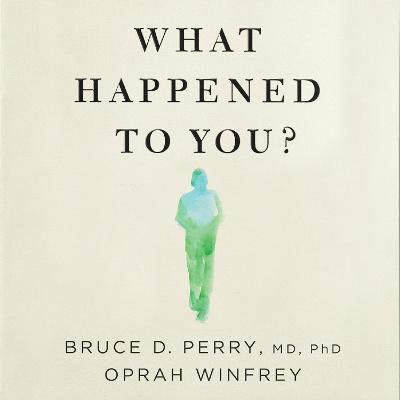This morning, SxSWEdu kicked off virtually with a keynote by Oprah Winfrey and Dr. Bruce Perry on the topic of how childhood experiences change the biology of our bodies and brains. The discussion was based on research comprising a book they co-authored called “What Happened to You?” which will be available April 27th. Because teachers were busy teaching during this livestream, here are a few highlights…
What is trauma?
- Trauma is an experience that can literally influence the way your stress response system works and, as a result, have long-term impact on a person.
- The experience itself is not necessarily the trauma: It’s the ability to manage that experience based on events that have prepared or not prepared one to do so.
- The trauma doesn’t have to be “huge,” but can be “silent traumas” that have equal impact.
- Our body’s stress response systems housed in the brain are malleable in response to the pattern of stressor that we experience. If our experiences with stress are unpredictable (i.e., we have no control over them) we can have changes in stress that look like a “Capital T” trauma. For instance, if a minority in a majority community experience unpredictable “micro aggressions,” those little events make us overly sensitized and makes us biologically predisposed to diabetes, heart disease, asthma, etc.
Oprah’s Main Message
- Our brain development and decision-making patterns are shaped by the first few years of our life experiences. Not 0-6 years, but the first two months of life.
- This is the “Bing Bing Bing Moment”: Traumatic experiences during development change our biology and make us at an increased risk for health problems, substance abuses, etc.. But if look at WHEN those adverse experience take place, it’s the first couple of months.
- Kids with lots of adversity and few relational supports who get into healthy environments after those first two months have worse outcomes than kids who have nurturing first two months and THEN have trauma.
- Key Thing: The older a child gets and the more they struggle, the more the world misunderstands their behavior. “Your inattention and misbehavior” vs. “Something happened to you.”
The Brain as a Layered Cake
- Envision brain as upside down triangle.
- Regulatory systems that control breathing involved in the stress response is the bottom layer, the foundation. When activated, we shut down the top layers of our brain responsible for sensory information, motor skills and reason — the cortex.
- When someone speaks with us, that information goes into lower part of the brain first, through the lower reactionary part of brain, then the emotional part of brain, and, finally, reasoning part of the brain.
- As parents, teachers, therapists, we must figure out how to balance students’ regulatory systems (that bottom layer) before we can reach and teach them. We will never get to where we want to be with students if we don’t address the trauma response.
Regulate to Educate
- When a child’s Initial signal from the world is that they are in a place of danger, even when in a safe place (school), the brain is wired to believe everything is a threat.
- Our brains are exquisitely tuned to the relational cues people are giving. We can’t coach, reason, teach students when they are during their anger. Biologically, it will not work.
- Being “regulated” means being in balance. Our bodies have all these systems to keep us in balance (lungs balance oxygen, for example). Our stress response systems in lower part of the brain are continually getting information from the outside and inside world. One of the major set of signals are the relational milieus, signals from people around us. When we get signals from people around us that we belong, we feel safe. When we don’t, when we feel marginalized or degraded, we feel dysregulated.
- Perry’s main message to teachers: “We must regulate first before you can have any kind of reasoning.”
The Pandemic’s Impact on Teachers and Students’ Mental Health
- A Center for Disease Control report states that “beginning in April 2020, the proportion of children’s mental health-related ER visits among all pediatric ER visits increased and remained elevated through October. Compared with 2019, the proportion of mental health-related visits for children aged 5-11 and 12-17 increased approximately 24% and 31% respectively.”
- The question: Will the education community and those who support it be willing to do the things to help these kids become better regulated and restore their resistance?
- This year drained the reserves of educators and children. And, there were many who started this pandemic already on empty.
- The way forward is revisiting the “sequence of engagement” – the brain as a layer cake. When the cortex is shut down and dysregulated, no matter how much we teach, won’t change what’s happening in the cortex. The first thing we must do is help kids get regulated, get back in routine.
- Pushing teachers and students when they’re dysregulated will make it worse and everyone will fall further behind.
How to Regulate?
- Being with other people. When we’re in the presence of people with whom we belong, we feel safer. Kids need to play with each other. We need to reconnect and encourage relational interaction.
- Take advantage of rhythm. Rhythm is a gift we have. One of the first primal sets of memories we have is the power of pattern and repetitive memory and being regulated in the womb. Let kids run, dance, play.
Signs of Trauma Teachers Can Look For?
- Inattentiveness: Either hypervigilance or tuning out (disassociation). Both get labeled as “ADD” and students frequently end up on medications that don’t help.
Disassociation: A lot of teachers’ first thought is: “What’s wrong with this kid? I’m teaching and they are daydreaming.” However, we tend to disassociate to protect ourselves. Usually, the first thing that shows up with people who have been traumatized is disassociation. This is a confusing presentation for educators. One of the confusing presentations of disassociation is the student who loves reading. They go to another world. But when they attempt math – they can’t do it. Math requires linear, sequential focus and these kids are dipping in and out of focus. When a kid has all A’s in reading and D’s in math, one could think “I know you’re smart and that you can do it, but you’re choosing not to.” It’s really an example of dissociation.
- Passivity and compliance: It’s easy for teachers to misinterpret passive and compliant students as quiet little learners who are following direction. If one looks carefully, however, the kids who are doing these compliant behaviors (not always, but often) are wanting to get the teacher to leave them alone.
How Can Our History Bring Clarity?
- Teachers often feel as if misbehavior is directed toward them. However, if students have a history of trauma, everything is fight or flight for them. A teacher’s physical nearness (such as coming up behind their desk) triggers a physical cue.
- If we teach educators about trauma and the responses, teachers can shift in the way they understand the child. Teachers no longer take it personally, but ask, “What happened to you?” and the interaction changes.
- Over the years, children have been punished, ostracized, made to feel shamed by the behavior which only makes it worse.
The Hope
- All parts of the brain are malleable, the key is actually reaching the parts of the brain with sufficient repetition to cause change.
- Children who have these early life insults and profound disabilities during development, if they also have exposure to nurturing relationships, can and will get better. It just takes time.
- “All it takes is one person who believes in you,” said Oprah. “I was saved by Miss Duncan in the fourth grade. All it takes is one person who believes in you and for a lot of children in this world that’s all they have…and that safe place is schools for most kids.”



